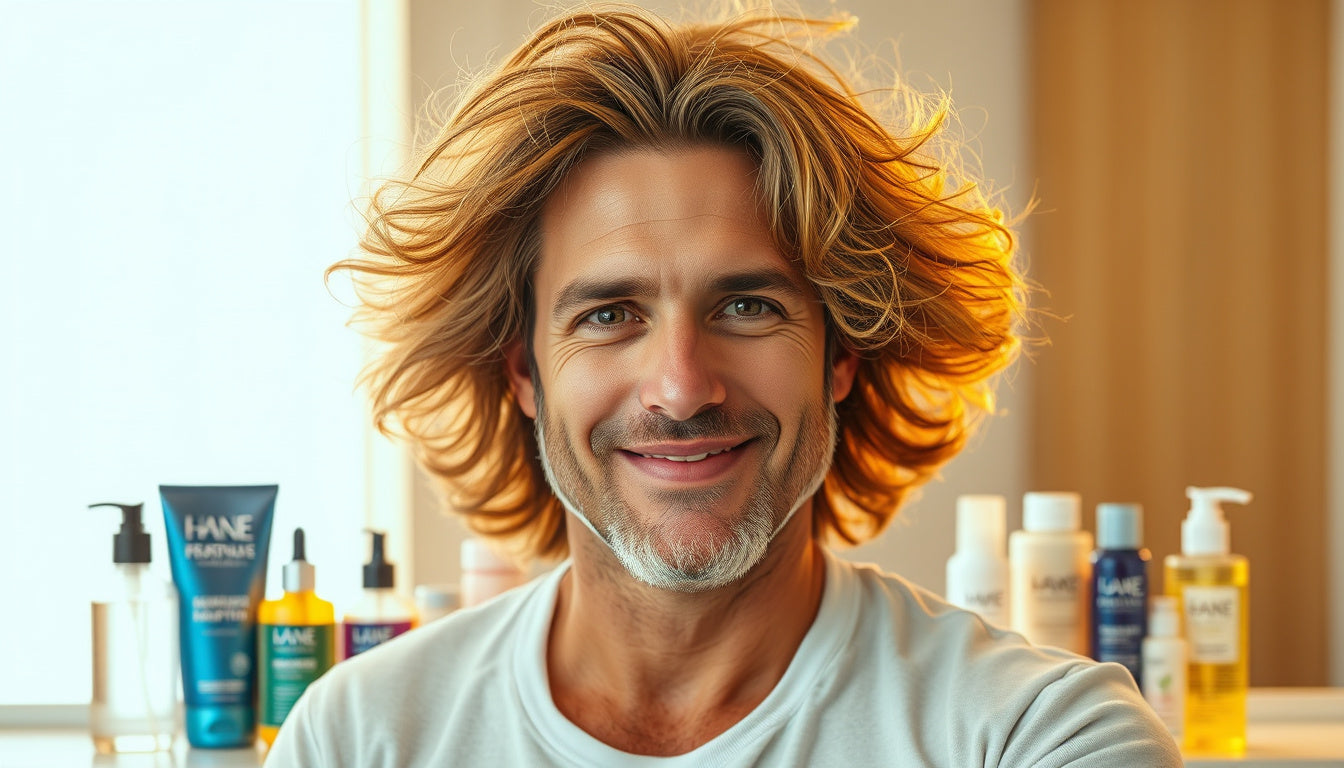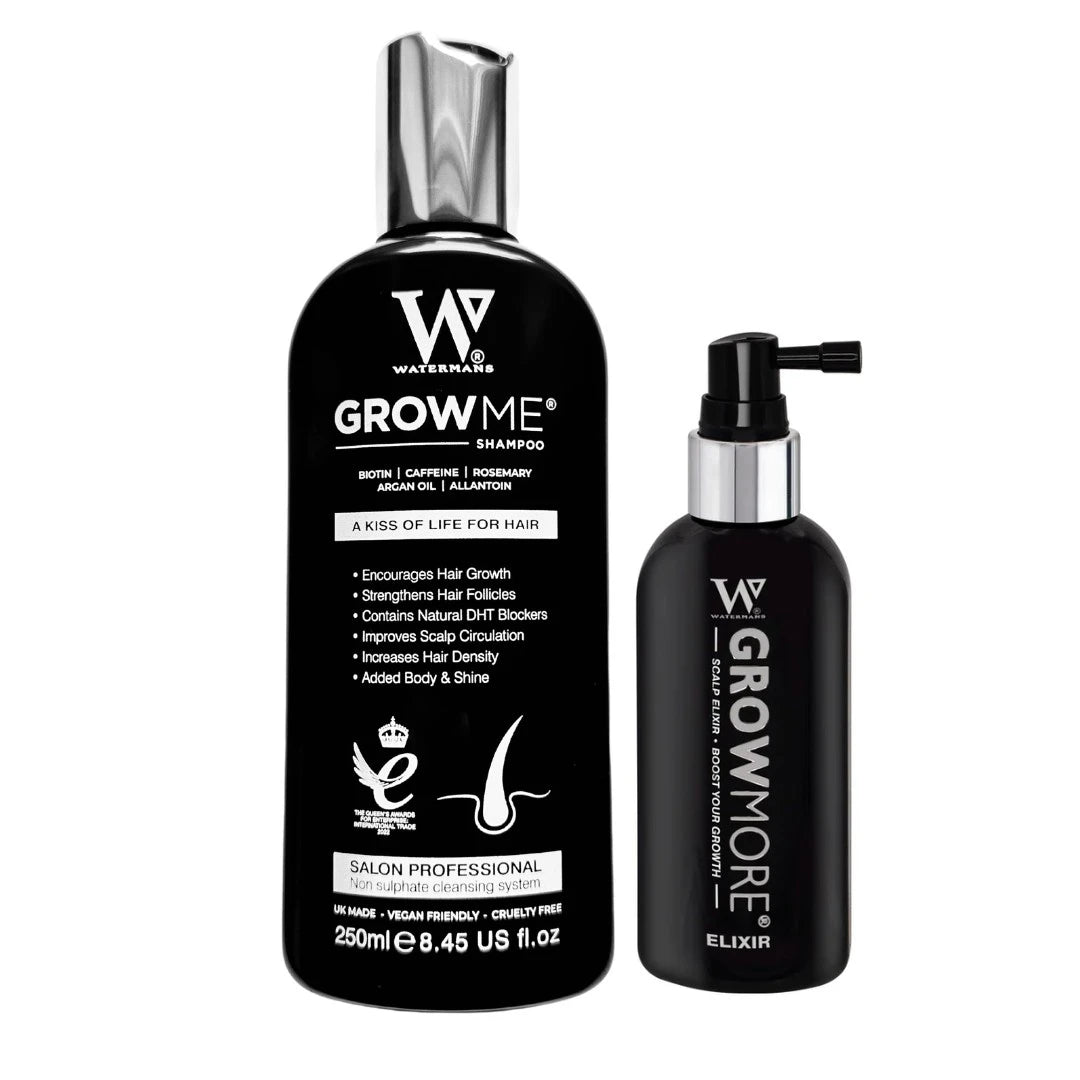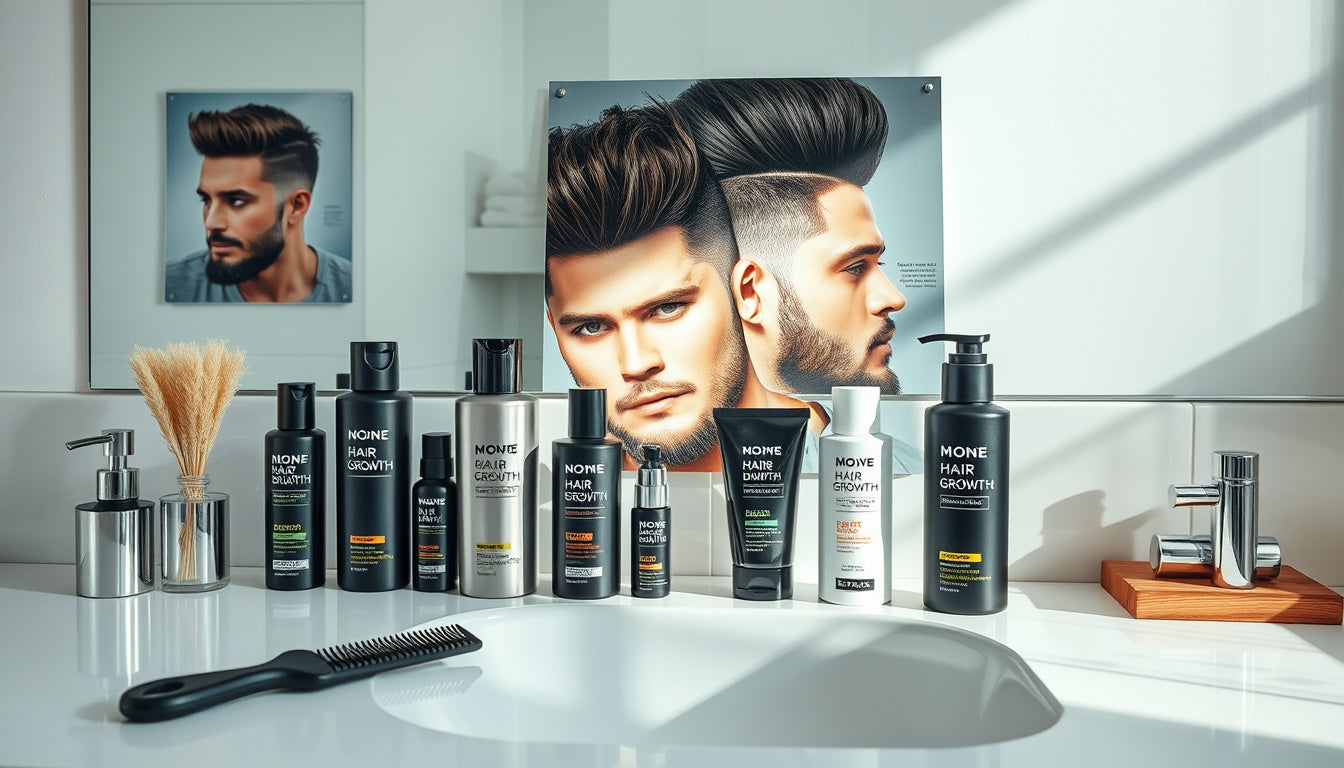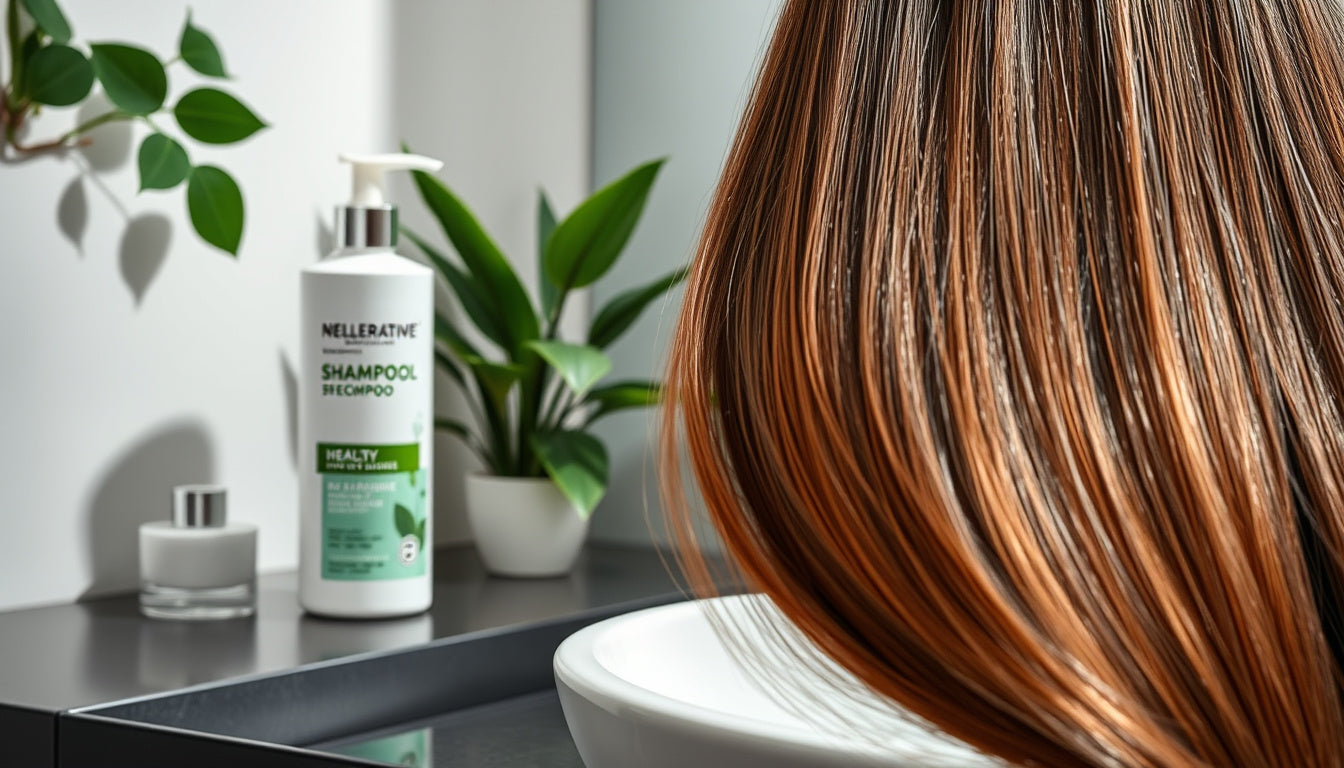
Unlock Radiant Confidence: The Best Hair Products for Menopause-Related Hair Challenges

When women hit menopause, their bodies start to change. Hair is one part that changes. Menopause may lead to thin hair, dry strands, and a loss of shine. But do not fear! Many menopause hair products help with these changes and bring back your hair's old charm. In this article, we look at these products and share tips for taking care of your hair during menopause.
With the right products and care, you manage hair changes well. This can open a path to renewed self-assurance and lively hair.
Understanding Menopause and Its Effects on Hair
Menopause is a normal stage in a woman's life. It usually comes between the ages of 45 and 55. During this time, hormones change. Lower estrogen may bring thinner hair. Higher testosterone can make hair coarse and weak. Knowing these changes helps you pick the right hair care products.
Common Hair Issues During Menopause
-
Thinning Hair: Many women see less hair as hormones change. Fewer hair follicles may mean thinner hair.
-
Dryness and Brittle Hair: Changing hormones mean the scalp may produce less oil. This leaves hair dry and prone to break.
-
Dullness: Hair loses its shine when it lacks moisture and a healthy scalp.
-
Change in Texture: Hormonal shifts may cause your hair to feel coarser or finer and change its style.
The Key Ingredients to Look For
When you pick menopause hair products, check the formula. Many successful formulas show these ingredients:
-
Biotin: This vitamin helps to strengthen hair and boost growth.
-
Rosemary Oil: This oil increases blood flow to the scalp. It works to wake up hair follicles.
-
Caffeine: Products with caffeine use it to bring more energy to the scalp.
-
Niacinamide: A form of Vitamin B3 that helps the scalp hold more moisture.
-
Argan Oil: This oil has fatty acids and Vitamin E. It adds moisture and shine to your hair.
-
Allantoin: This ingredient soothes the scalp and stops irritation.
-
Lupin Protein: A plant protein that feeds hair and makes it tougher against damage.
Top Menopause Hair Products to Consider
1. Watermans Grow Me Shampoo
If you see thinning hair during menopause, try Watermans Grow Me Shampoo. It holds biotin, rosemary, caffeine, niacinamide, argan oil, allantoin, and lupin protein together. The shampoo works at the roots. It helps the scalp feel awake and makes hair look fuller.
2. Nourishing Hair Conditioner
A strong conditioner adds moisture and softness to your hair. Choose products with argan oil, shea butter, or coconut oil to fight dryness. These ingredients sink into the hair and keep it smooth.
3. A Hydrating Hair Mask
Try a hydrating hair mask once a week. Pick one with honey, avocado, or aloe vera. These masks bring life back into dry hair and bring back its glow.
4. Scalp Treatment Oils
Scalp oils can help blood move better in your head. Look for oils like jojoba, argan, or castor oil. Massaging these oils into your scalp feels good and may wake up your hair growth.
5. Leave-in Conditioners
Leave-in conditioners are light and help when your hair feels dry. They hold moisture, calm frizz, and form a shield for hair. Choose ones with natural oils or silicones to smooth the hair.
How to Care for Your Hair During Menopause
Use these practices to care for your hair as well as the right products:
-
Regular Trims: Get haircuts to cut away split ends. This helps your hair look neat.
-
Gentle Washing: Wash your hair 2-3 times a week. Washing too often takes away natural oils.
-
Cold Water Rinse: Rinse with cold water after washing to close the cuticles and trap moisture.
-
Heat Protection: Use a heat guard before styling with heat. This stops damage.
-
Balanced Diet: A good diet with vitamins and minerals keeps hair strong. Foods with omega-3 fatty acids, vitamins A, C, D, E, and minerals like iron and zinc help your hair.
Shampoos and Conditioners for Menopausal Hair
Shampoo Options
-
Hydrating Shampoo: This shampoo helps balance moisture. Look for ingredients such as hyaluronic acid or aloe vera.
-
Thickening Shampoo: A thickening shampoo makes your hair appear fuller.
Conditioner Options
-
Smoothing Conditioner: If your hair frizzes, choose a smoothing conditioner with silicones to calm it.
-
Volume-Boosting Conditioner: For fine hair, a conditioner that adds volume gives lift.
Natural Remedies for Menopausal Hair Challenges
If you prefer natural help, try these remedies:
Essential Oils
Lavender or cedarwood oils can help with hair growth when rubbed on the scalp. Mix these with a carrier oil like jojoba or coconut oil for a gentle treatment.
Herbal Rinses
Chamomile or green tea rinses can be used after shampooing. They add shine and softness to your hair with antioxidants.
Aloe Vera
Aloe vera gel can go on the hair and scalp. It cools irritation, makes hair smooth, and keeps moisture in.
Understanding Hair Restoration Products
Many products like topical serums and sprays work to restore hair. If you want to try them, read the label for well-known active ingredients that help with hair loss.
If you also want supplements, look for ones with biotin, silica, and collagen. These help to keep hair strong and growing.
Q&A Section
Q1: How can I tell if I have menopause-related hair thinning?
Answer: Check if your hair volume and density change. If you see more hair fall or wider parts when styling, you may have thinning hair.
Q2: Is it normal for hair texture to change during menopause?
Answer: Yes, many women see changes. Hair may feel coarser or lose its natural curl or wave.
Q3: How often should I wash my hair during menopause?
Answer: Washing 2-3 times a week is best. This helps keep the natural oils in your hair.
Q4: Can diet affect hair health during menopause?
Answer: Yes, a diet full of vitamins, minerals, and fatty acids helps keep hair strong.
Q5: Are there hairstyles I should avoid during menopause?
Answer: Avoid tight styles that pull on hair. They can trigger breakage or loss.
Did You Know?
Did You Know #1:
Menopause affects hair on your head and can also thin hair on your brows or underarms.
Did You Know #2:
Hormonal treatments like HRT (Hormone Replacement Therapy) may help bring more density to your hair.
Did You Know #3:
Regular scalp massages help blood flow. Better flow can wake up hair follicles during menopause.
Did You Know #4:
A lack of biotin may lead to hair loss and weak hair. Diet matters during menopause.
Take time to learn about your hair needs. Try different menopause hair products to see what works for you. With care, patience, and high-quality products like Watermans Grow Me Shampoo, you can enjoy healthy, beautiful hair once more!













